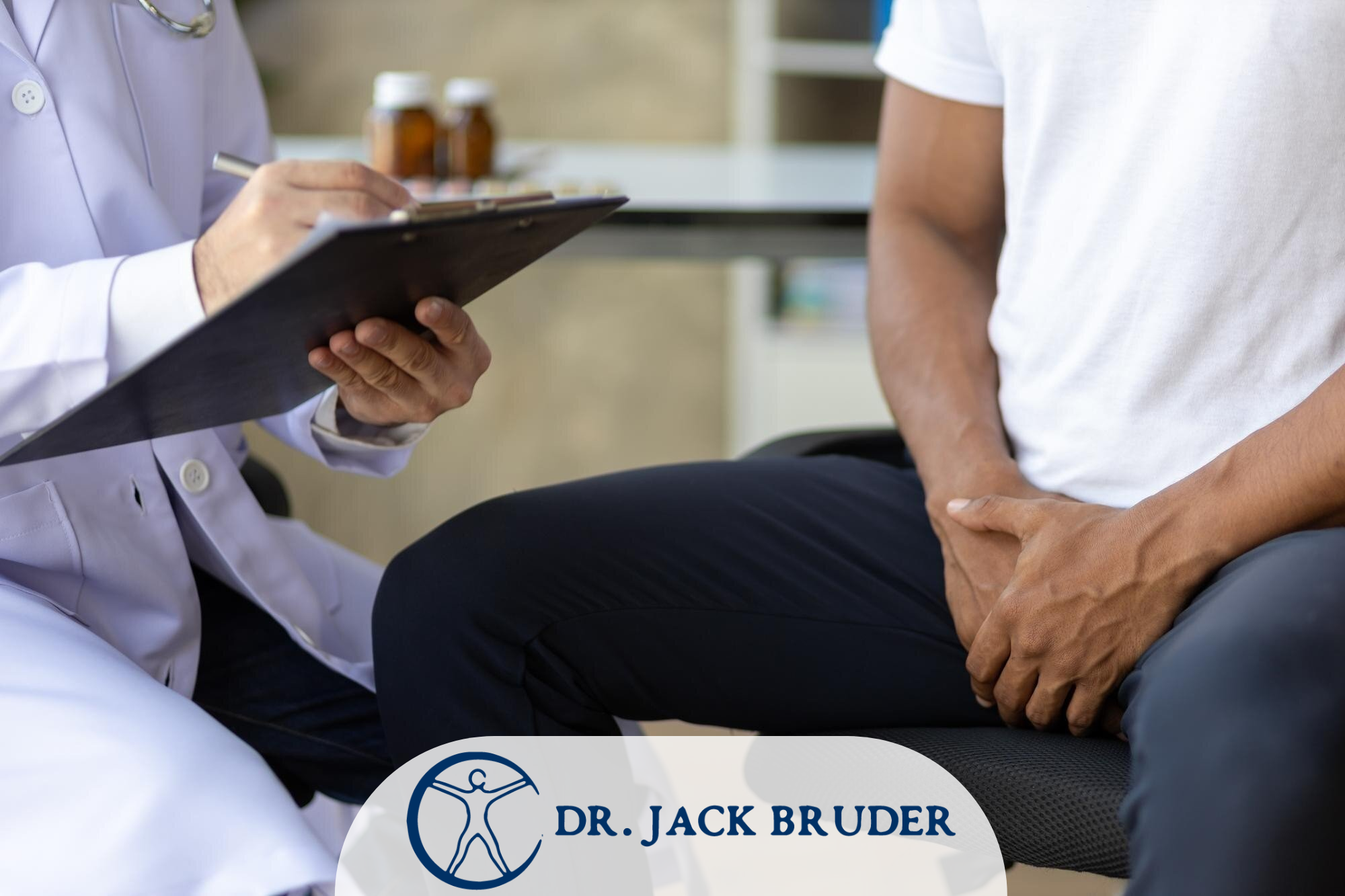Erectile dysfunction (ED) is more common than many men realize, and for those living in New York City, finding the right specialist can make a world of difference. Whether ED is an occasional problem or a persistent issue, a urology doctor in Manhattan can offer expert solutions. With advancements in medical treatments and a better understanding of underlying causes, there are more options than ever to help men regain their confidence and quality of life.
If you’re struggling with ED, you’re not alone, and more importantly, help is available. Let’s explore what a urology doctor in NYC can do for erectile dysfunction, how they diagnose and treat the condition, and what steps you can take to regain control of your sexual health.
Understanding Erectile Dysfunction
ED is the inability to achieve or maintain an erection firm enough for sexual intercourse. While it’s normal to experience occasional difficulties, persistent ED can indicate an underlying health issue. It can stem from a variety of causes, including:
- Physical causes: Cardiovascular disease, diabetes, high blood pressure, obesity, and hormonal imbalances.
- Psychological causes: Stress, anxiety, depression, and relationship issues.
- Lifestyle factors: Smoking, excessive alcohol consumption, lack of exercise, and poor diet.
Since ED can be a symptom of more significant health problems, seeking help from an experienced erectile dysfunction doctor in New York City is essential for both sexual and overall well-being.
How a Urology Doctor in NYC Diagnoses Erectile Dysfunction
When you visit a urology doctor in New York for ED concerns, they will conduct a thorough assessment to identify the root cause. This typically includes:
1. Medical History Review
Your doctor will ask about your medical history, lifestyle habits, and any medications you are taking. Certain medications, including blood pressure drugs and antidepressants, can contribute to ED.
2. Physical Examination
A physical exam can help detect underlying health issues such as nerve damage, poor circulation, or hormonal imbalances. Your doctor may check for signs of low testosterone or other conditions affecting erectile function.
3. Blood and Urine Tests
These tests can reveal diabetes, high cholesterol, hormone levels, and other potential causes of ED. Identifying these factors can help your doctor determine the best course of treatment.
4. Nocturnal Penile Tumescence (NPT) Test
This test evaluates whether nighttime erections are occurring, which can help distinguish between physical and psychological causes of ED.
5. Ultrasound Examination
A Doppler ultrasound can assess blood flow to the penis, helping identify vascular problems that could be causing ED.
By conducting a thorough evaluation, a urologist in Manhattan can determine the most effective treatment plan.
Treatment Options for Erectile Dysfunction
The good news is that ED is highly treatable. A skilled erectile dysfunction doctor in NYC can offer a range of solutions based on the underlying cause.
1. Lifestyle Changes
For many men, improving lifestyle habits can have a significant impact on ED. Your doctor may recommend:
- Dietary changes: Eating a heart-healthy diet rich in fruits, vegetables, whole grains, and lean proteins.
- Regular exercise: Increasing physical activity can boost circulation and improve overall health.
- Quitting smoking and reducing alcohol intake: Both can have a negative effect on erectile function.
- Managing stress and mental health: Stress-reducing techniques such as meditation, therapy, and adequate sleep can help.
2. Oral Medications
Medications such as sildenafil (Viagra), tadalafil (Cialis), and vardenafil (Levitra) are commonly prescribed to improve blood flow to the penis. These medications are effective for many men, but they may not be suitable for those with heart conditions or other medical concerns.
3. Hormone Therapy
If tests reveal low testosterone levels, your doctor may recommend hormone replacement therapy (HRT). Balancing hormone levels can improve energy, mood, and erectile function.
4. Injection Therapy and Urethral Suppositories
For men who don’t respond to oral medications, direct injection therapy (such as alprostadil) can help achieve an erection. Alternatively, urethral suppositories offer another method of delivering medication.
5. Vacuum Erection Devices
A vacuum erection device (VED) is a non-invasive option that uses suction to increase blood flow to the penis. It can be effective for men who prefer a drug-free approach.
6. Penile Implants
For severe cases of ED, surgical options like penile implants may be considered. These devices provide a long-term solution when other treatments fail.
7. Psychological Counseling
Since mental health plays a key role in erectile function, counseling or therapy can help address stress, anxiety, or relationship concerns contributing to ED.
The Link Between Erectile Dysfunction and Overall Health
ED isn’t just about sexual performance—it can be an indicator of broader health concerns. In fact, it is often one of the first signs of cardiovascular disease. Research suggests that men with ED are at a higher risk of heart disease and stroke.
This is why it’s crucial to consult a urology doctor in New York City if you experience persistent erectile difficulties. Treating ED isn’t just about improving sexual function; it’s about ensuring long-term health and wellness.
Preventing Erectile Dysfunction
While some causes of ED are beyond your control, there are steps you can take to lower your risk:
- Maintain a healthy weight
- Exercise regularly
- Eat a balanced diet
- Manage stress effectively
- Get regular medical check-ups
By taking a proactive approach, you can improve both your sexual and overall health.
When to See a Urology Specialist
If you’re experiencing persistent ED, don’t wait to seek help. Many men delay treatment due to embarrassment, but it’s important to remember that ED is a common medical condition—and highly treatable.
A compassionate and experienced erectile dysfunction doctor in New York can provide the expertise and support you need. Whether you’re dealing with mild or severe ED, there’s a solution available to help you regain confidence and enjoy a fulfilling sex life.
For more information on erectile dysfunction, visit the National Institute of Diabetes and Digestive and Kidney Diseases (NIDDK), American Urological Association, or Mayo Clinic for reliable health resources.
Frequently Asked Questions About Erectile Dysfunction
1. Can erectile dysfunction be reversed?
Yes, in many cases, ED can be improved or even reversed. The key is identifying the underlying cause. If it’s due to lifestyle factors like poor diet, lack of exercise, or smoking, making healthier choices can restore normal function. If ED is caused by a medical condition like diabetes or heart disease, managing those conditions can help. Additionally, medications like Viagra or Cialis, hormone therapy, and even counseling for psychological factors can make a significant difference. The best course of action is to speak with an erectile dysfunction doctor in New York City to explore your options.
2. How do I know if my ED is caused by a physical or psychological issue?
ED can have both physical and psychological causes, and sometimes, it’s a combination of both. A good way to tell is to consider when and how it occurs. If you wake up with erections or can achieve them during masturbation but struggle during intercourse, stress, anxiety, or relationship issues may be contributing factors. If erections are consistently difficult to achieve in all situations, physical causes like poor circulation, diabetes, or low testosterone may be involved. A urology doctor in NYC can conduct blood tests, physical exams, and specialized tests to determine the root cause.
3. Are there any natural remedies for ED?
Yes, several natural approaches may help. Regular physical activity, particularly aerobic exercises like walking or cycling, can improve circulation and erectile function. A diet rich in whole foods, such as fruits, vegetables, nuts, and lean proteins, supports heart health, which is directly linked to better erections. Stress management techniques, including meditation, yoga, and deep breathing, can also play a role, especially if anxiety is a factor. That said, not all cases of ED can be resolved naturally, so it’s essential to work with a urologist in Manhattan for a personalized plan.
4. When should I see a doctor for ED?
If ED occurs more than occasionally, it’s worth seeing a specialist. Many men hesitate due to embarrassment, but ED can be an early warning sign of serious health issues, including heart disease or diabetes. A urology doctor in Manhattan can assess your condition, identify underlying problems, and recommend the most effective treatments. Seeking help sooner rather than later can also prevent further complications.
5. What is the best treatment for ED?
There is no one-size-fits-all solution, as the best treatment depends on the cause. Many men benefit from medications like sildenafil (Viagra) or tadalafil (Cialis), which improve blood flow. Others may require hormone therapy if testosterone levels are low. Lifestyle changes, such as weight loss and exercise, can be highly effective. For more severe cases, injection therapy, vacuum erection devices, or even penile implants might be recommended. The best way to determine the right approach is to consult an erectile dysfunction doctor in NYC who can tailor treatment to your needs.
6. Does ED mean I have a serious health problem?
Not necessarily, but it can be an early warning sign. ED is often linked to poor cardiovascular health, high blood pressure, diabetes, or even neurological conditions like Parkinson’s disease. Since blood vessels in the penis are smaller than those in the heart, they may show signs of poor circulation earlier. This makes ED a potential red flag for heart disease. A check-up with a urology doctor in NYC can help rule out or address any underlying health concerns.
7. Can stress and anxiety cause erectile dysfunction?
Absolutely. Mental health plays a huge role in sexual function. Stress, anxiety, depression, and performance pressure can all interfere with arousal and erection. In fact, even one episode of ED can lead to ongoing anxiety about performance, creating a vicious cycle. If psychological factors are suspected, therapy, stress management techniques, and sometimes medications can help. A holistic approach that includes mental and physical health care is often the most effective.
8. Are there any side effects to ED medications?
Most ED medications are safe for healthy individuals, but they can cause side effects like headaches, flushing, nasal congestion, upset stomach, and dizziness. Some men experience vision changes or back pain. It’s crucial to avoid these medications if you take nitrates for heart disease, as they can cause a dangerous drop in blood pressure. Always consult a urologist in New York City before starting any medication.
9. Can ED be a sign of low testosterone?
Yes, low testosterone (low T) can contribute to ED, although it’s not the sole cause. Testosterone plays a role in libido, mood, and overall energy levels. If you’re experiencing fatigue, reduced sex drive, or difficulty maintaining erections, hormone testing might be recommended. If low T is detected, testosterone replacement therapy (TRT) can help restore balance. However, it’s important to approach hormone therapy under the guidance of a urology doctor in Manhattan to ensure safety and effectiveness.
10. What can I do today to start improving my ED?
You don’t have to wait for a doctor’s appointment to start making changes. Here are some actionable steps:
- Quit smoking – It damages blood vessels and reduces circulation.
- Exercise regularly – Just 30 minutes of walking per day can improve ED.
- Eat heart-healthy foods – A diet rich in vegetables, lean proteins, and healthy fats supports blood flow.
- Manage stress – Practice relaxation techniques like deep breathing or meditation.
- Limit alcohol – Too much alcohol can affect testosterone and nerve function.
- Prioritize sleep – Poor sleep patterns are linked to ED and lower testosterone.
While these steps can help, professional guidance is invaluable. If you’re struggling with ED, don’t hesitate to seek help from a urologist in NYC who can provide a comprehensive evaluation and treatment plan.
Take Charge of Your Sexual Health
Erectile dysfunction is a common yet treatable condition, and you don’t have to deal with it alone. If you’re ready to take the next step, consult an experienced erectile dysfunction doctor in New York to find the right solution for you. By addressing ED today, you’re investing in your overall health and well-being.




